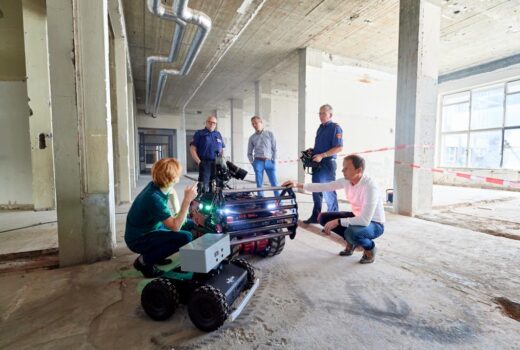Kennis, de groene motor

Swiftly raise growth potential EU
A consultation on the strategy will be launched 24 November,with a final proposal to be released in January next year once thenew European Commission is in place. The new strategy is due toreplace the EU’s flagship Lisbon Agenda for growth and jobs, whichwas adopted in the Portuguese capital in 2000 and expires nextyear. EU leaders are expected to adopt the revised strategy inMarch 2010.
Next week’s consultation document takes the economicand financial crisis as a starting point, saying the EU’sfirst task in the coming years will be to emerge from therecession. “The remaining problems in the financialsystem need to be solved swiftly in order to raise the EU’sgrowth potential,” the paper argues. “Access to credit andefficient financial market supervision will be crucial for therecovery.”
Commission spokesperson Mark English said there will not be anydetailed proposals to come out of the discussion paper becausethe EU executive is still acting in a caretaker capacitybefore a new team is nominated in January next year. “You know theinstitutional situation has been very uncertain,” English toldEuractiv, referring to delays in ratifying the LisbonTreaty. “We are not in a position to make concrete proposals fornow.”
Exit strategy
Nevertheless, the Commission document already lists a number ofkey challenges. The first will be to balance the “continued needfor fiscal support” for economic growth in the short term with “theneed to restore sustainable public finances and macroeconomicstability” in the long run, the Commission warns.
The stability and growth pact, which limits public deficits inthe member states to 3% of Gross Domestic Product (GDP), “will playan important role” in returning to sustainable growth levels, theEU executive stresses. Although the current draft gives noindication as to the timetable for reforms, the 2020 strategy istherefore effectively seen as the EU’s exit strategy fromthe economic crisis.
“Member states will need to redirect public expenditure towardsthe thematic objectives of EU 2020 so that the necessaryinvestments in Europe’s future can be made,” the Commission says,arguing that “room can be found to invest in sustainable growth”despite the current strain on public finances.
EU member states firmly in control
The new strategy places EU member states firmly in control ofthe agenda, saying the European Council of heads ofstate should “fix a small number of headline objectives anddefine the corresponding policy action to be pursued at EU andmember state level in partnership”.
“The cornerstone of the future strategy should be the EuropeanCouncil since it is the body which at European level ensures theintegration of policies, manages interdependence between memberstates and the EU.”
For each objective, member states would “set their individualtargets for five years corresponding to their nationalsituations and their starting points”. The Commission would monitorimplementation every year, with both a thematic and countryreview. The European Parliament could also take on a greaterrole by expressing its views on the 2020 strategy before March nextyear, the Commission adds.
Four key priorities
The paper defines four key priorities for 2020:
- Innovation and knowledge: The “engine forsustainable growth” is knowledge and technology, the Commissionargues, saying the EU needs to move to “a value economy”. “In afast-changing world, what makes the difference is innovation inboth products and processes.”
- Fighting exclusion: With unemployment setto hit double-digit figures in 2010, the Commission recommends”empowering people” in order to create new jobs. “Thetransformation of the EU towards a greener, knowledge-based economywill boost new job creation and help reduce high levels ofunemployment,” it argues. Transition between jobs and trainingperiods will require a major effort to prevent people falling outof the system, and to ensure social cohesion, it says.
- Green growth: With higher energy pricesand greater competition for natural resources, European businessesneed to adapt, the Commission warns. “More efficient use ofresources, energy, and the application of new, greener technologieswill stimulate growth, create new jobs and services and help the EUmeet its environmental and climate goals,” it argues.
- Digital Europe. Developing a “smart, upgradedtransport and energy infrastructures to improvecompetitiveness”.
Meest Gelezen
Wederom intimidatie van journalisten door universiteit, nu in Delft
‘Burgerschapsonderwijs moet ook verplicht worden in hbo en wo’
Raad van State: laat taaltoets nog niet gelden voor hbo-opleidingen
Vrouwen houden universiteit draaiende, maar krijgen daarvoor geen waardering
Extra geld voor bètafaculteiten is daar nooit terechtgekomen



